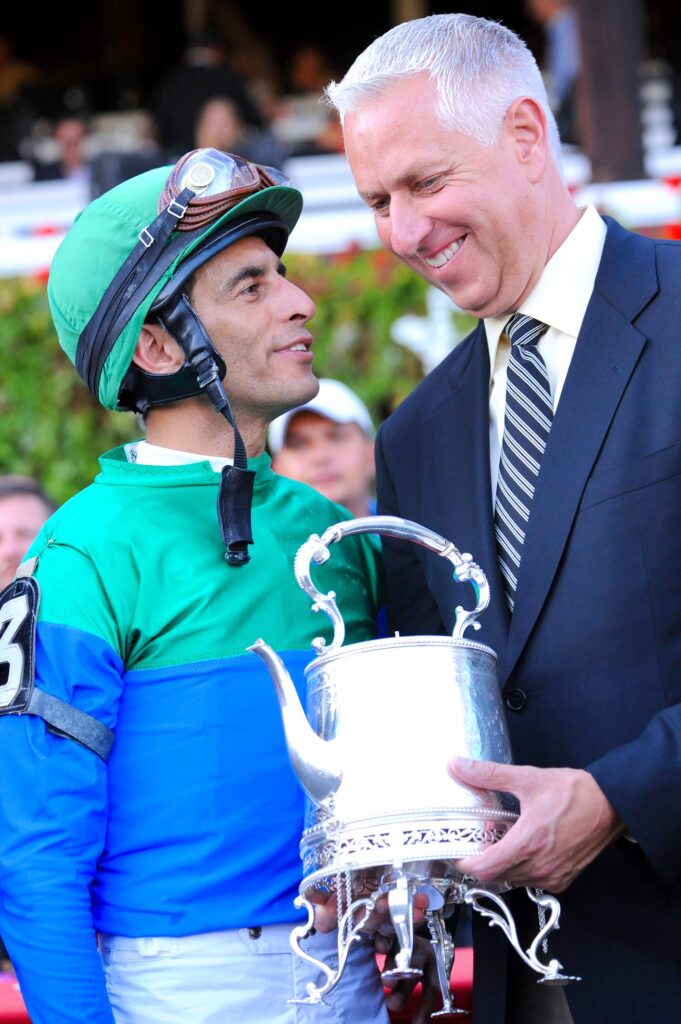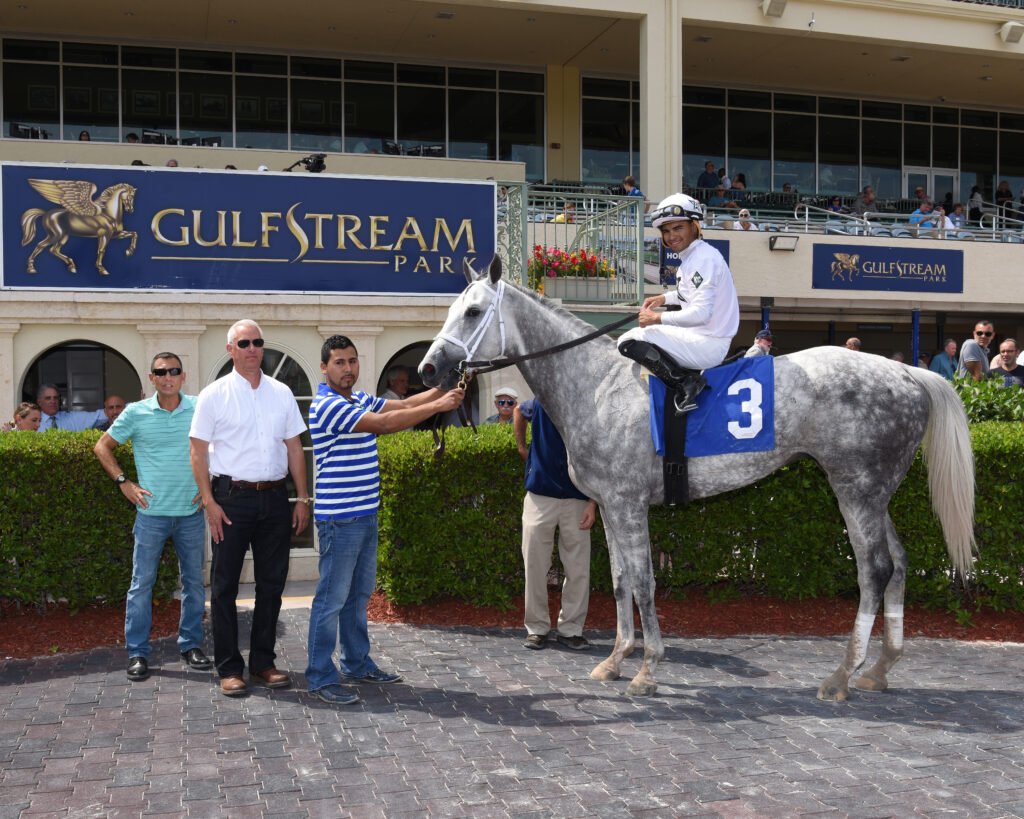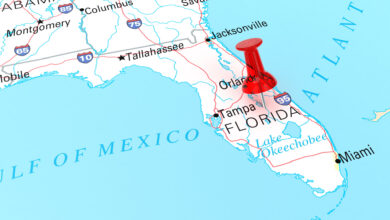Those who know Todd Pletcher say he was destined for horse racing greatness. Now, he’s headed to the sport’s Hall of Fame.

On Aug. 6, Todd Pletcher will be inducted into horse racing’s Hall of Fame of the National Museum of Racing in Saratoga, New York. There will be no debate over whether it is deserved — Pletcher has the victories, the records, the awards and the career earnings to validate his first-ballot selection.
But for Pletcher, being named to the Hall of Fame is more than an honor earned from a life of accomplishment on the track. It is a date with destiny.
You see, Pletcher, in his own words, was “exposed to horse racing from birth.” By age 7 he was a hot walker for his father, J.J. Pletcher, a respected quarter horse and thoroughbred trainer himself. Before he even reached adolescence, Todd told his mother he wanted to be a horse trainer when he grew up. Today, he has won more prize money than any trainer in history and, arguably, is the face of American horse racing.
“Training horses is all I ever wanted to do,” Pletcher said after learning he was being inducted to the Hall of Fame. “I remember being 11 or 12 and telling my mother I wanted to train, and she said it was wonderful. From that point on, with her endorsement, I never thought of doing anything else.”
Now 54, the list of honors and records Pletcher has racked up is remarkable. Among them:
• A record seven Eclipse Awards as outstanding trainer, 2004-2007, 2010, 2013-14.
• Five Triple Crown wins, including the Kentucky Derby twice with Super Saver (2010) and Always Dreaming (2017) and the Belmont Stakes three times with Rags to Riches (2007), Palace Malice (2013) and Tapwrit (2017).
• 11 Breeders’ Cup wins.
• He’s trained 11 Eclipse Award-winning horses, including Hall of Famer Ashado, English Channel, Lawyer Ron, Rags to Riches, Uncle Mo and Vino Rosso.
• He has racked up more than 5,150 victories, including 699 graded stakes races, en route to becoming horse racing’s all-time leading trainer in earnings, some $409 million to date.
• He has more than 22,000 starts since becoming a trainer in December 1995, finishing in the money an impressive 52 percent of the time, including winning 23 percent of those races.
So, what does it mean to Pletcher to be the all-time leading money winner in horse racing history?
“I never looked at it from that perspective,” he said. “I was surprised when, at one point, we moved up into the top 10. Frankly, I’ve never been motivated by the purse money. The excitement for me is the excitement of the win and the excitement you can create for other people.”
Horse racing pedigree
Pedigree plays an important role in horse racing, and not just with the horses. Pletcher was exposed to horse racing from the day he was born, and it undoubtedly played a role in him getting to where he is today. Both his parents came from horse racing backgrounds, especially his father, J.J., who today, at 86, still operates Payton Training Center in Belleview, a 96-stall, 40-employee operation in which Todd is a partner and calls “a big part of our organization.”
During Todd’s childhood, J.J. was a successful quarter horse and thoroughbred trainer largely in the Southwest who knew some of the legendary names in the business. An only child, Todd spent much of his youth around J.J.’s barns and started working as a hot walker at 7 or 8. His father remembers going to races – where, at the time, children were not allowed in the tracks – and Todd being left at the barn while J.J. went to watch the races.
“He’d pretend he was a jockey,” J.J. Pletcher said, adding “he can ride as well as anybody.”
As a teenager, the younger Pletcher continued to work around his father’s barn and pursue his dream of becoming a trainer. That his father knew some other biggest names in horse training presented special opportunities.
“The only thing I required is you’ve got to go to college,” J.J. Pletcher said.
Grooming Pletcher for what he has become today started early. Between his junior and senior year of high school, Pletcher went to California to work as a hot walker for his father’s best friend, Henry Moreno, a high-respected West Coast trainer. After enrolling in the University of Arizona’s four-year Race Track Industry Program, he worked as a groom for fellow Hall of Famer D. Wayne Lukas between his sophomore and junior years of college and as a groom for another Hall of Fame trainer, Charlie Whittingham, the following summer.
“There’s no question that the people (my father) knew in the business certainly gave me a head start,” Pletcher said.
Good gets better
After graduating from Arizona with a degree in animal science in 1989, Pletcher went to work for Lukas in New York as a foreman under Lukas’ son and right hand man, Jeff. Within two years, he was promoted to assistant trainer. At the time, Lukas was horse racing’s hottest trainer and was known for developing young trainers, his “coaching tree,” as he calls it.
“I was at the right place at the right time,” Pletcher said. “I was fortunate.”
Lukas said Pletcher showed the “intensity and work ethic to be successful.”
“The thing you have to see early on is that they can see what a horse needs,” Lukas said. “I call it intuitive awareness, and he had that.”
Lukas said his son, Jeff, and Pletcher were his two most successful proteges.
After Jeff Lukas was severely injured in a barn accident in 1991, Pletcher took over running Lukas’ New York operation, where he learned a tremendous amount about the horse racing industry.
By 1995, at age 28, Pletcher knew he was lucky to be working for “the strongest stable in the country” with Lukas, “But at the same time, I felt like I wanted to make my own decisions.”
So, Pletcher got his trainer’s license and, with eight horses, started his own stable.
Pletcher’s demeanor, confidence and knowledge of horses helped him to quickly grow and prosper. Maybe his most important attribute, according to his father, was his ability to manage people, especially the rich owners who are a trainer’s bread and butter.
“Managing people,” the elder Pletcher said when asked his son’s best quality. “Managing the owners. Handling egos. Managing rich, successful people.”
But that isn’t Pletcher only strength, according to his father.
“He’s probably got the best work ethic of any trainer I know — meeting the right people and how to do the right things,” J.J. Pletcher said.
Pletcher also has a gift for identifying quality horses, sometimes when their potential is unnoticed by his competitors. One of Pletcher’s most famous horses, Breeders’ Cup Turf champion English Channel, was purchased for $50,000 and earned $5 million. It is just one example.
The passion and intensity that both his father and Lukas talk about Pletcher possessing help him manage his horse training operation from his base in Garden City, Long Island, New York. With facilities and horses in New York, Kentucky and Florida, Pletcher has to keep tabs on the 175 horses under his care and the 125 employees who keep his Todd A. Pletcher Racing Stables Inc. running.
That requires a lot of attention to detail, 24/7, 365 days a year. Something those who know Pletcher say he excels at.
“He has a memory like an elephant,” his father said. “He can tell you about a horse he trained 20 years ago.”
“His work ethic and intensity, he doesn’t leave anything untouched,” Lukas said. “He’s got his hand on everything.”
For Pletcher, though, training horses isn’t complex, just common sense.
“A lot of training horses is common sense and recognizing what the horse is responding to and making adjustments,” Pletcher said. “I think they’re creatures of habit. They like to be familiar with their surroundings and a routine.”
That said, he acknowledges that horse racing is anything but easy or predictable.
“It’s a never-ending challenge,” Pletcher said. “The thing about the horse business is there is literally a new challenge around the corner every day.”
Perspective is necessary as well, he said, because it is a business that produces extreme highs and extreme lows. The trick is to find consistency in training methods and recognize a horse’s limits.
He talked about the thrill of achieving his 5,000th victory as a trainer last November. A couple months later, though, he experienced his 17,000th loss.
“It’s a rollercoaster ride, for sure,” Pletcher said.
“What we try to do as a stable is pretty simple. We try to get the most out of a horse that they’re capable of.”

Ocala TIES
Pletcher spends most of his time in New York, with frequent visits to Kentucky and Florida. Ocala is special because his father and stepmother, equine Realtor Joan Pletcher, live here and the Payton Training Center (named after Pletcher’s eldest son Payton) is where he sends most of his horses to prep them “to take the next step forward.”
Of course, his father remains his biggest confidante, and they talk frequently.
“We talk often, sometimes six, seven times a week,” he said. “We talk about all sorts of things – family, horses, the industry, all sorts of stuff.”
Pletcher also is a regular visitor to Ocala Breeder Sales’ auctions, and the family spends several weeks in Ocala around Christmas each year.
Pletcher’s place in history
To be inducted into the Hall of Fame, a trainer has to have been licensed for 25 years. Pletcher hit the 25-year mark in December. As a result, he got into the Hall on the first ballot. So, we asked Hall of Famer Lukas where he believes Pletcher stands among horse racing’s greatest trainers, especially given that he is the top money-winner of all time.
“I won’t answer that,” Lukas responded. “I don’t know that there’s an answer to it.
“What I will say is Todd has certainly done everything you would expect of a man at his age. I never doubted he was going to be very, very successful. I never had any doubt he would be in the Hall of Fame.”
Both Lukas and J.J. Pletcher said one of the things that sets Todd Pletcher apart from most trainers is his devotion to family and the remarkable relationship he has maintained with his wife, Tracy, his high school sweetheart in Dallas, Texas, and who Pletcher said is “heavily involved” in his business.
Lukas said Pletcher’s familial success is every bit as impressive as his on-track success.
“I’m glad you’re talking about his family,” said Lukas, who has had four marriages. “He has been a wonderful, wonderful family man, and that’s difficult in the business we’re in with all the traveling and long hours. That’s as impressive as winning the Kentucky Derby.”
Lukas called Tracy’s influence on Pletcher and the business “huge.”
“When you’re as intense as Todd is, you’re married to the barn and the industry,” he said. “If you’ve got back-up like Tracy, you’ve really got something. She’s a tremendous support system.”
Veteran racing journalist and author of 22 books on thoroughbred racing Edward L. Bowen said the perception is trainers are typically either good managers who leave the horsemanship to staff, or they’re good horsemen who leave the management of their operations to others. Pletcher, he said, has the rare ability to excel at both.
“Todd Pletcher is one of the group that are called ‘super trainers’ today in the United States,” Bowen said. “It is popular in the media to presume that a trainer can be a traditional hands-on horseman who is up to date on each and every horse in his/her care, OR he/she can be a highly efficient organization leader who runs a successful ‘company.’ Fact is, Pletcher and a few of his compatriots are proving that one trainer can be both.
“True, Pletcher is a confident communicator and organizer, but … (he) can emulate the traditional, wise and sharp-eyed horseman, who can run his hands along a horse’s legs and discern that change in routine is, or is not, called for.”
Having won more than 5,000 races and won hundreds of millions of dollars, Pletcher still remembers his first Grade 1 stakes winner, Jersey Girl, with fondness. He also remembers winning his first Eclipse Award. So many wins and awards have followed.
“My first Eclipse Award meant a lot to me,” he said. “It was certainly something I didn’t think was possible when I started.”
What about being inducted to the Hall of Fame?
“To be honest with you, it’s still sinking in. It’s obviously a tremendous honor, but it’s just starting to sink in.”
That said, on Aug. 6, Todd Pletcher has a date with destiny.






